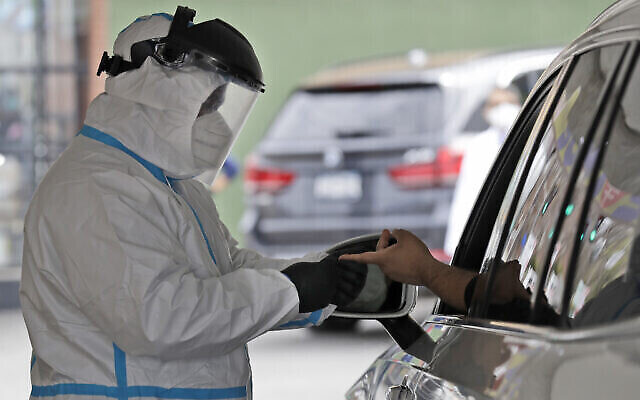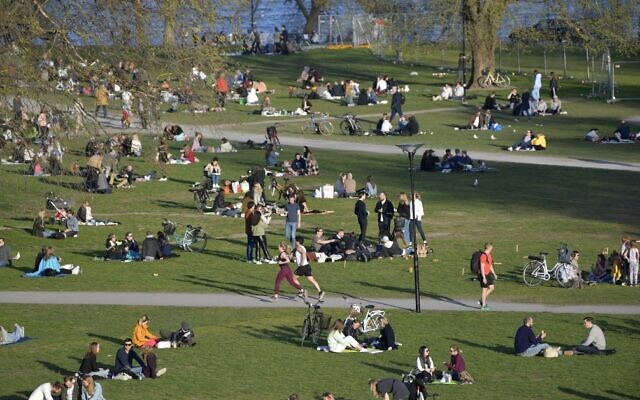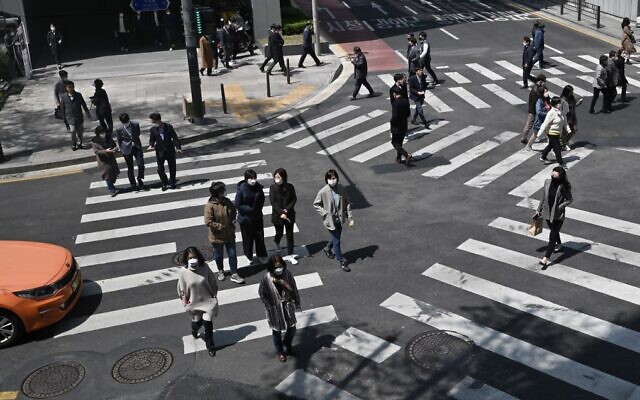WHO Says No Evidence COVID-19 Patients are Immune to Reinfection
World Health Organization warns against notion of ‘immunity passports,’ saying they could risk further transmission of the coronavirus.

The World Health Organization on Saturday said there is currently no evidence that people who have recovered from COVID-19 and have antibodies are protected against a second infection, cautioning against the idea of “immunity passports.”
The concept of “immunity passports” or “risk-free certificates” has been floated as a way of allowing people protected against reinfection to return to work.
It argued that people who assume they are immune to reinfection may ignore public health advice, and such certificates could raise the risks of continued virus transmission.
The WHO added that tests for antibodies of the new coronavirus also “need further validation to determine their accuracy and reliability.”

For some viral diseases such a measles, overcoming the sickness confers immunity for life.
But for RNA-based viruses such as Sars-Cov-2 — the scientific name for the virus that causes the COVID-19 disease — it takes about three weeks to build up a sufficient quantity of antibodies, and even then they may provide protection for only a few months.
At least that is the theory. In reality, the new coronavirus has thrown up one surprise after another, to the point where virologists and epidemiologists are sure of very little.
“We would expect that to be a reasonable period of protection, but it is very difficult to say with a new virus — we can only extrapolate from other coronaviruses, and even that data is quite limited.”
A recent study from China that has not gone through peer review reported on rhesus monkeys that recovered from Sars-Cov-2 and did not get reinfected when exposed once again to the virus.
“But that doesn’t really reveal anything,” said Pasteur Institute researcher Frederic Tangy, noting that the experiment unfolded over only a month.
Indeed, several cases from South Korea — one of the first countries hit by the new coronavirus — found that patients who recovered from COVID-19 later tested positive for the virus.
But there are several ways to explain that outcome, scientists cautioned.
While it is not impossible that these individuals became infected a second time, there is little evidence this is what happened.
More likely, said director of the Genetics Institute at University College London Francois Ballou, is that the virus never completely disappeared in the first place and remains — dormant and asymptomatic — as a “chronic infection,” like herpes.

As tests for live virus and antibodies have not yet been perfected, it is also possible that these patients at some point tested “false negative” when in fact they had not rid themselves of the pathogen.
“That suggests that people remain infected for a long time — several weeks,” Balloux added. “That is not ideal.”
Another pre-publication study that looked at 175 recovered patients in Shanghai showed different concentrations of protective antibodies 10 to 15 days after the onset of symptoms.
“But whether that antibody response actually means immunity is a separate question,” commented Maria Van Kerhove, Technical Lead of the WHO Emergencies Program.
“That’s something we really need to better understand — what does that antibody response look like in terms of immunity.”
For the moment, it is also unclear whose antibodies are more potent in beating back the disease: someone who nearly died, or someone with only light symptoms or even no symptoms at all. And does age make a difference?
Faced with all these uncertainties, some experts have doubts about the wisdom of pursuing a “herd immunity” strategy such that the virus — unable to find new victims — peters out by itself when a majority of the population is immune.
At the same time, laboratories are developing a slew of antibody tests to see what proportion of the population in different countries and regions have been contaminated.



comments